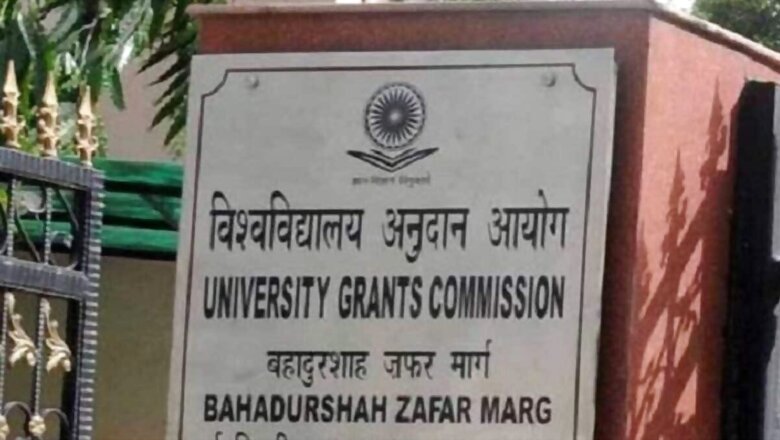
views
The University Grants Commission (UGC) released draft guidelines for introducing courses based on Indian Heritage and Culture in Indian institutes on March 16. This decision comes in light of the National Education Policy’s (NEP-2020) emphasis on the promotion of Indian Heritage and Culture. The framework introduced by the statutory body is for courses such as Ayurveda, Classical Dance Forms, Indian Languages, Music, Sanskrit, Universal Human Values, Vedic Mathematics, and Yoga.
With these courses, the aim is to attract international learners to India. The guidelines offer tailor-made courses adhering to a credit-based modular programme structure that higher education institutions (HEIs) can implement.
The UGC has suggested short-term credit-based modular programmes with multiple entries and exits “to promote the interest of people from abroad to visit India.” Depending on how rigorous the curricular structure is and on the degree of learning outcomes of relevant disciplines, the courses can have three tiers:
– Introductory level
– Intermediate level
– Advanced level
The UGC has allowed concerned HEIs offering the courses to set up specific eligibility conditions.
The guidelines propose a cumulative 60 hours duration for every programme. These can be covered under a flexible and hybrid (online-offline combination) mode.
Draft guidelines advise HEIs to develop the curriculum for the programme considering pointers such as the tradition and background of the area of study, important literature and texts concerned, the contributions of learned scholars, and basic tenets and schools of thought.
The modules are also to be designed keeping in mind the contemporary use of learning. Thus, HEIs must also focus on significant applied aspects and connect with the modern knowledge system when creating the programme.
Mediums and techniques for teaching can include lectures, audio-video content, group discussions, practical sessions, and excursions, among others.
Two types of evaluations, continuous and comprehensive assessment (CCA) and periodic assessment, must be used to award learners credits.
The UGC draft guidelines further note that “on successful completion of the course at every level, the learners shall be granted Certificates as specified by the Higher Educational Institutions. The Certificates so granted will be made available in digital form through the National Academic Depository (NAD) of the Government of India.”
Read all the Latest Education News here
















Comments
0 comment